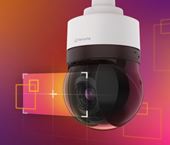The Physical-Logical Access Interoperability (PLAI) specification provides an open standard method of sharing and managing personnel, credential, card format, and biometric details across an enterprise. This enables customers to use their current badge technology and biometrics without the need for duplicate enrollments in different systems and the need to issue multiple credentials.
Created by the Physical Security Interoperability Alliance, the PLAI specification employs an open standard approach to integrating these different platforms as opposed to relying on individual platform drivers, simplifying the integration process.
The ability for centralised management of Personal Identifiable Information (PII) across multiple systems with the C-Cure 9000 PLAI adapter can ease compliance with data privacy regulations, such as GDPR, and reduce the risk of unauthorized access caused by identity conflicts in the operation of the access control system. This helps to reduce total cost of ownership by easing the administration burdens of making changes to users, credentials, locations, and roles.
Open standards can also extend the life of current systems and allow organisations to defer the cost of standardising on one physical access control platform. By supporting interoperability with other PLAI conformant access control technologies and biometrics, systems can be extended to include security events and door control as well as visitor management functions.
PLAI Adapter for Tyco Software House C-Cure 9000 is part of the Johnson Controls Openblue suite of connected solutions.




















